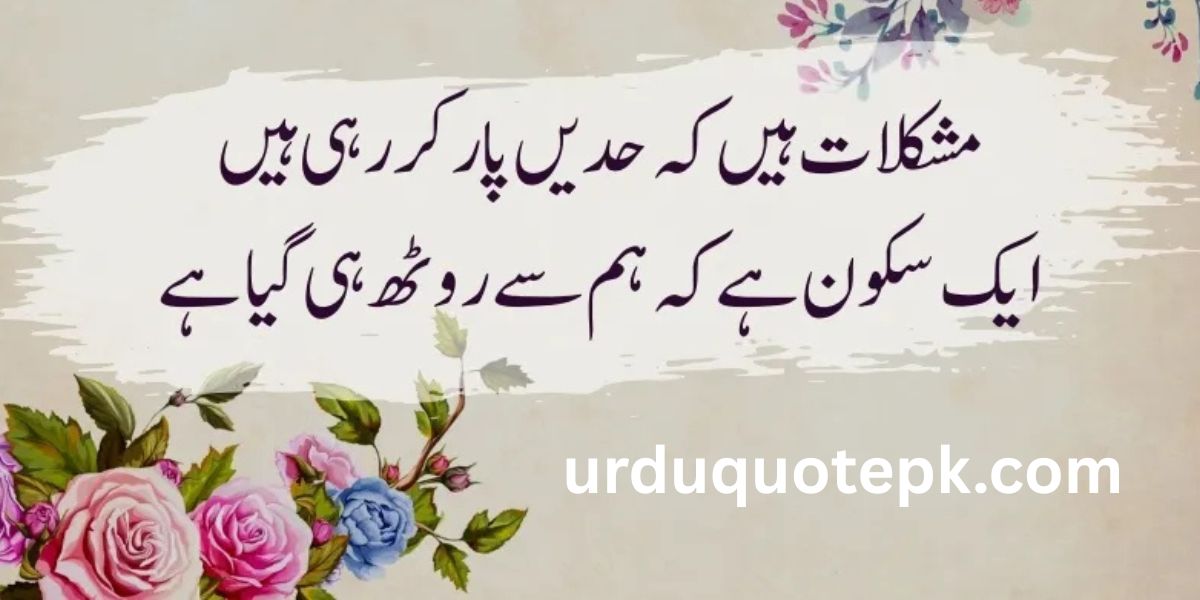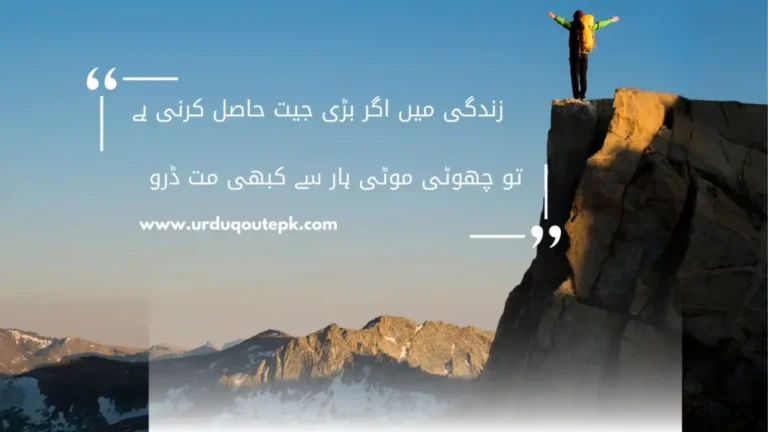20 Heartfelt Urdu Shayari 2025 | Deep & Touching Emotions
These Urdu shayari capture the essence of love, loss, sacrifice, and longing, offering a soulful way to express complex emotions. Each verse is paired with an aesthetic description, transliteration, translation, and a reflection on its meaning, making them perfect for sharing on social media or cherishing in quiet moments.
Table of Contents
Top Urdu Shayari
Conclusion
Top Urdu Shayari
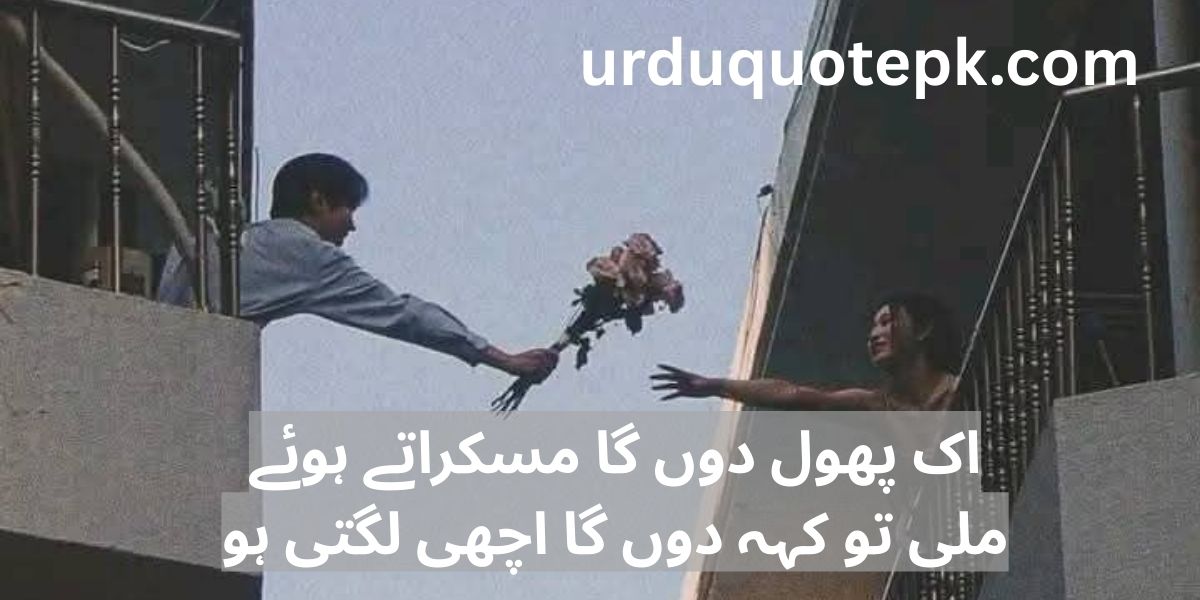
اک پھول دوں گا مسکراتے ہوئے
ملی تو کہہ دوں گا اچھی لگتی ہو
Ek phool doon ga muskurate hue
Mili to keh doon ga achhi lagti ho
Translation:
I’ll give you a flower with a smile,
If we meet, I’ll say you look beautiful.
Reflection:
This shayari radiates tender affection, capturing the simplicity of a heartfelt compliment. It reflects the joy of small gestures that brighten someone’s day, wrapped in the warmth of a genuine smile.
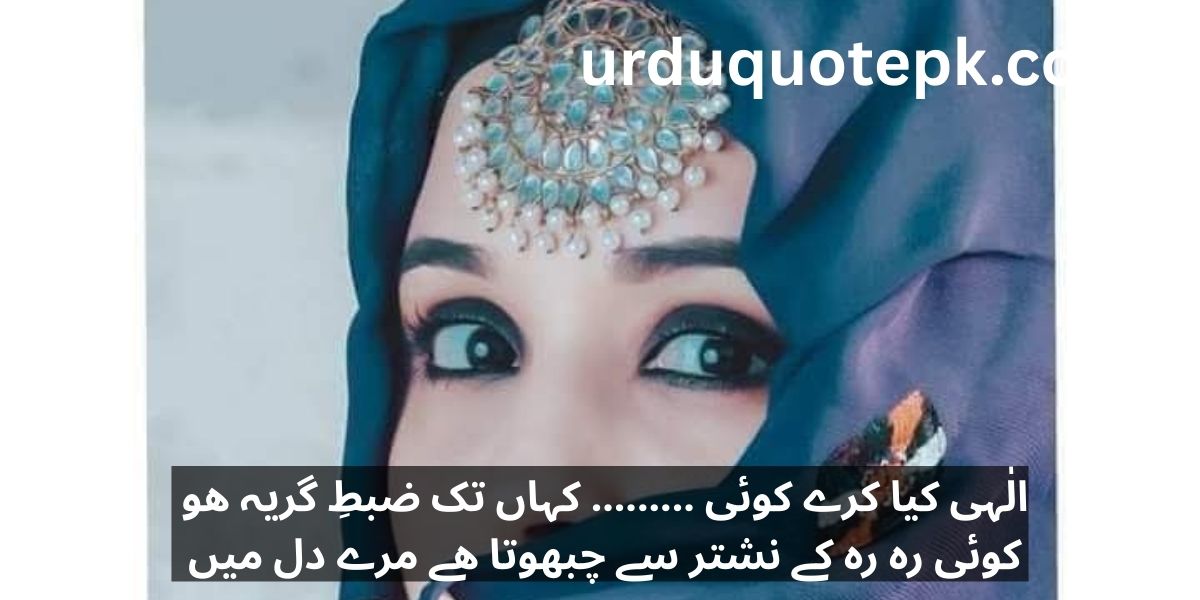
الٰہی کیا کرے کوئی کہاں تک ضبطِ گریہ ہو
کوئی رہ رہ کے نشتر سے چبھوتا ہے مرے دل میں
Ilahi kya kare koi kahan tak zabt-e-girya ho
Koi reh reh ke nashtar se chubhota hai mere dil mein
Translation:
O God, what can one do, how long can tears be held back?
Someone keeps piercing my heart with a dagger.
Reflection:
This verse conveys the unbearable pain of suppressed emotions, where the heart is repeatedly wounded. It speaks to the struggle of enduring silent suffering caused by someone’s actions.
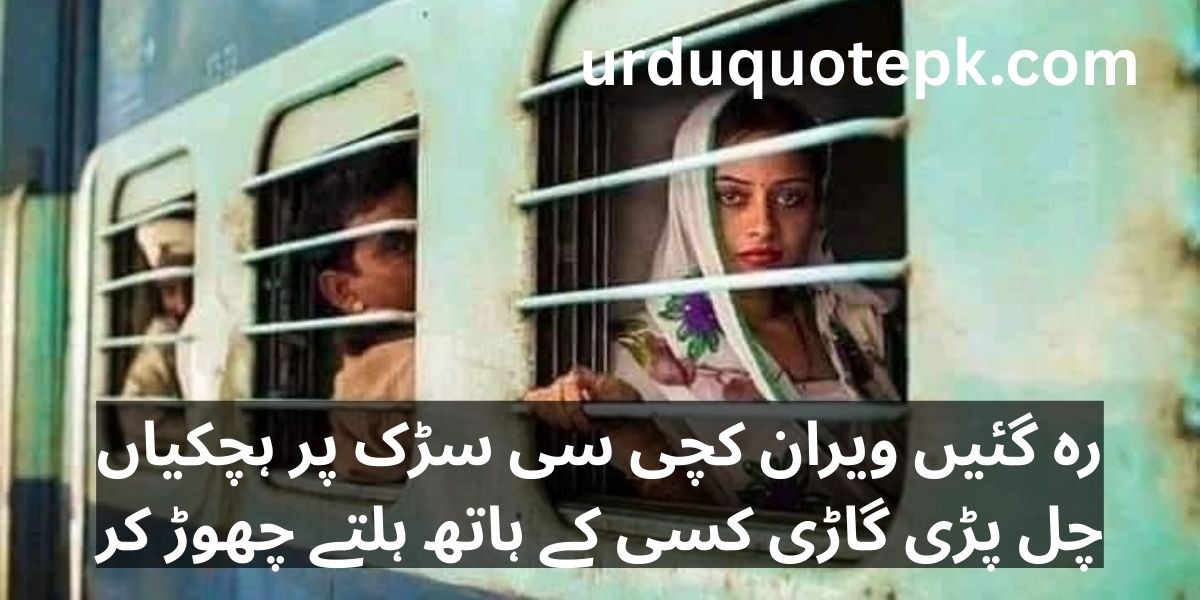
رہ گئیں ویران کچی سی سڑک پر ہچکیاں
چل پڑی گاڑی کسی کے ہاتھ ہلتے چھوڑ کر
Reh gayin veeran kacchi si sadak par hichkiyan
Chal padi gaadi kisi ke haath hilte chhod kar
Translation:
Hiccups lingered on the desolate dirt road,
The car moved on, leaving someone’s waving hand behind.
Reflection:
This shayari paints a poignant scene of departure, where the pain of separation lingers like hiccups. It captures the heartache of watching someone leave, with only memories remaining.
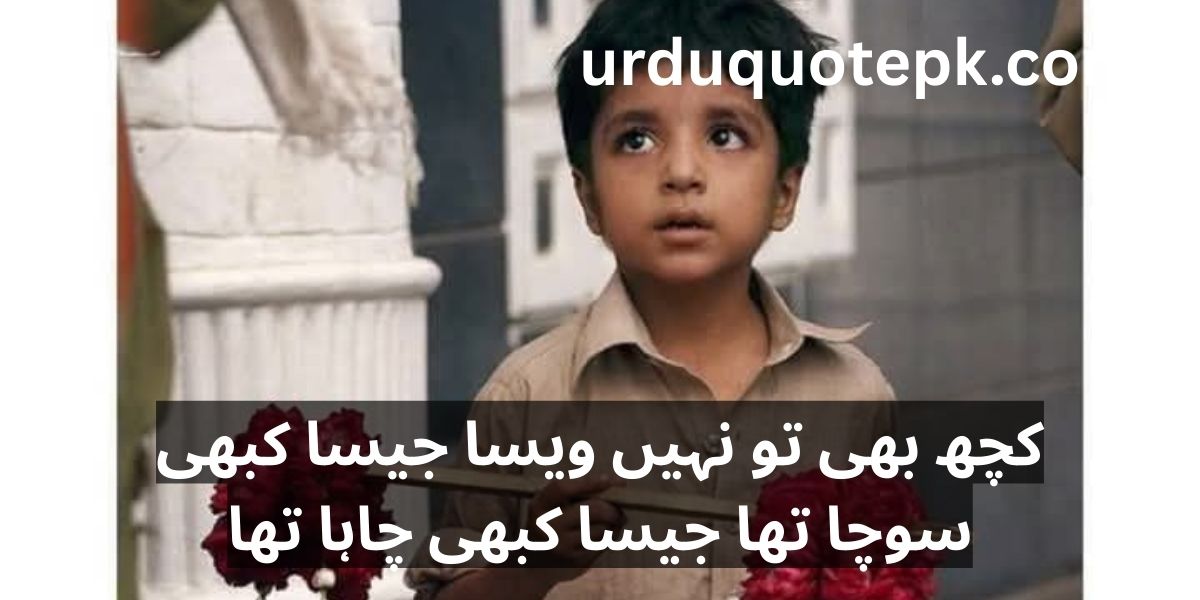
کچھ بھی تو نہیں ویسا جیسا کبھی
سوچا تھا جیسا کبھی چاہا تھا
Kuch bhi to nahi waisa jaisa kabhi
Socha tha jaisa kabhi chaha tha
Translation:
Nothing is as it once was,
As I had thought, as I had desired.
Reflection:
This verse reflects disillusionment, where dreams and reality diverge. It speaks to the sorrow of unmet expectations and the fading of once-cherished hopes.
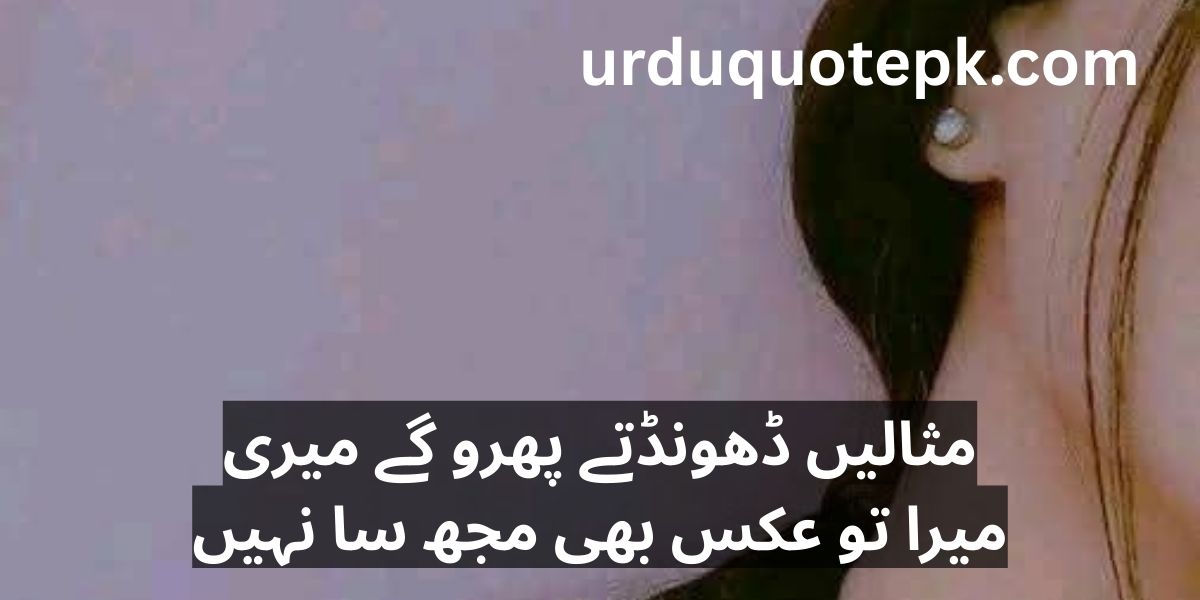
مثالیں ڈھونڈتے پھرو گے میری
میرا تو عکس بھی مجھ سا نہیں
Misalein dhoondte phiro ge meri
Mera to aks bhi mujh sa nahi
Translation:
You’ll search for examples of me,
Even my reflection isn’t like me.
Reflection:
This shayari celebrates uniqueness, suggesting that the speaker’s essence is unparalleled. It conveys a sense of pride in one’s individuality, unmatched even by their own shadow.
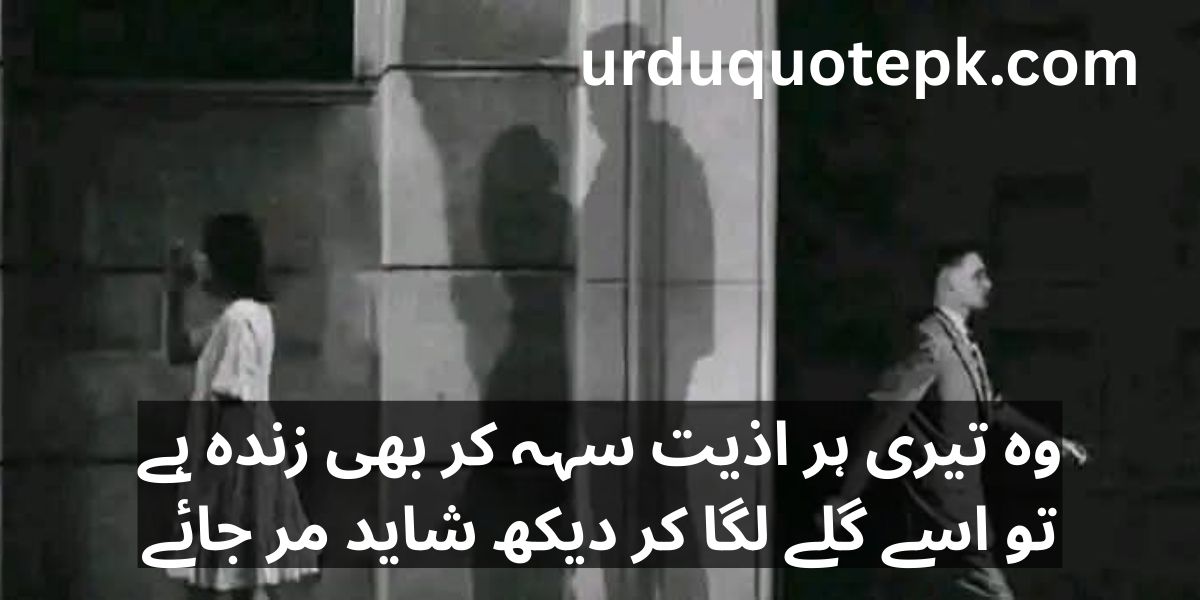
وہ تیری ہر اذیت سہہ کر بھی زندہ ہے
تو اسے گلے لگا کر دیکھ شاید مر جائے
Woh teri har aziyat seh kar bhi zinda hai
Tu usse gale laga kar dekh shayad mar jaye
Translation:
She survives all your torment,
Embrace her, and she might just die.
Reflection:
This verse is a powerful commentary on resilience and vulnerability. It suggests that someone who endures immense pain might be overwhelmed by a single act of kindness, highlighting the fragility beneath strength.

ماں نے چوما ہے جس کے ماتھے کو
عید اس شخص نے منائی ہے
Maan ne chuma hai jis ke mathe ko
Eid us shakhs ne manayi hai
Translation:
The one whose forehead a mother has kissed,
That person has truly celebrated Eid.
Reflection:
This shayari elevates a mother’s love as the ultimate source of joy. It implies that true happiness on Eid comes from the warmth of a mother’s affection, making any celebration complete.
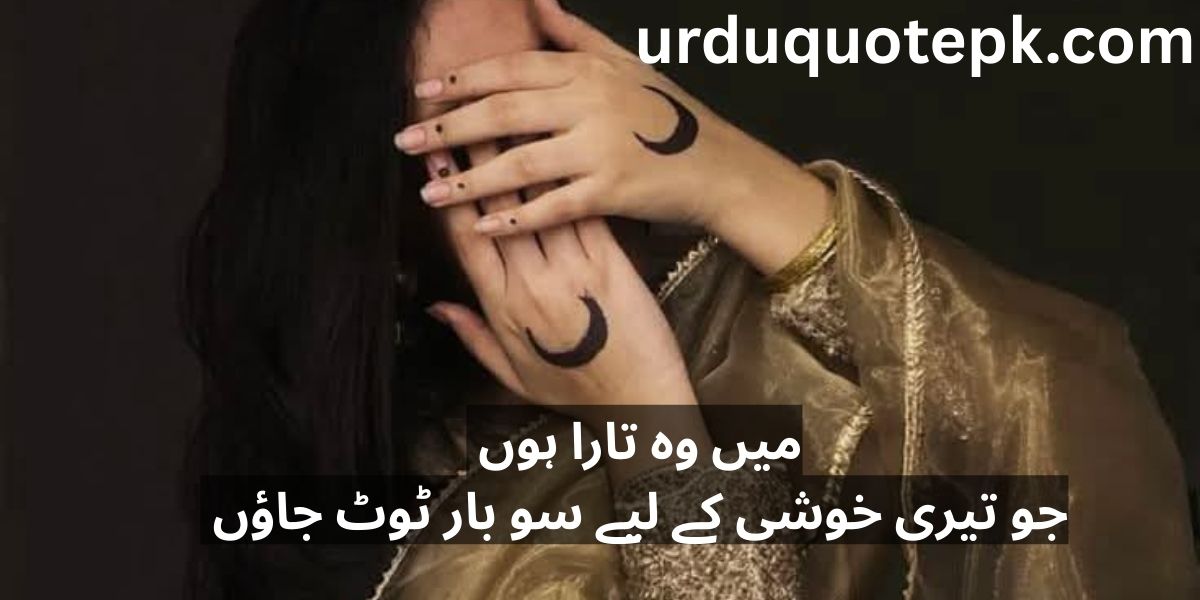
میں وہ تارا ہوں جو تیری خوشی کے لیے
سو بار ٹوٹ جاؤں
Main woh taara hoon jo teri khushi ke liye
So baar toot jaoon
Translation:
I am that star,
Breaking a hundred times for your happiness.
Reflection:
This verse embodies selfless love, comparing the speaker to a star that sacrifices itself for another’s joy. It reflects the depth of devotion and the willingness to endure pain for a loved one.
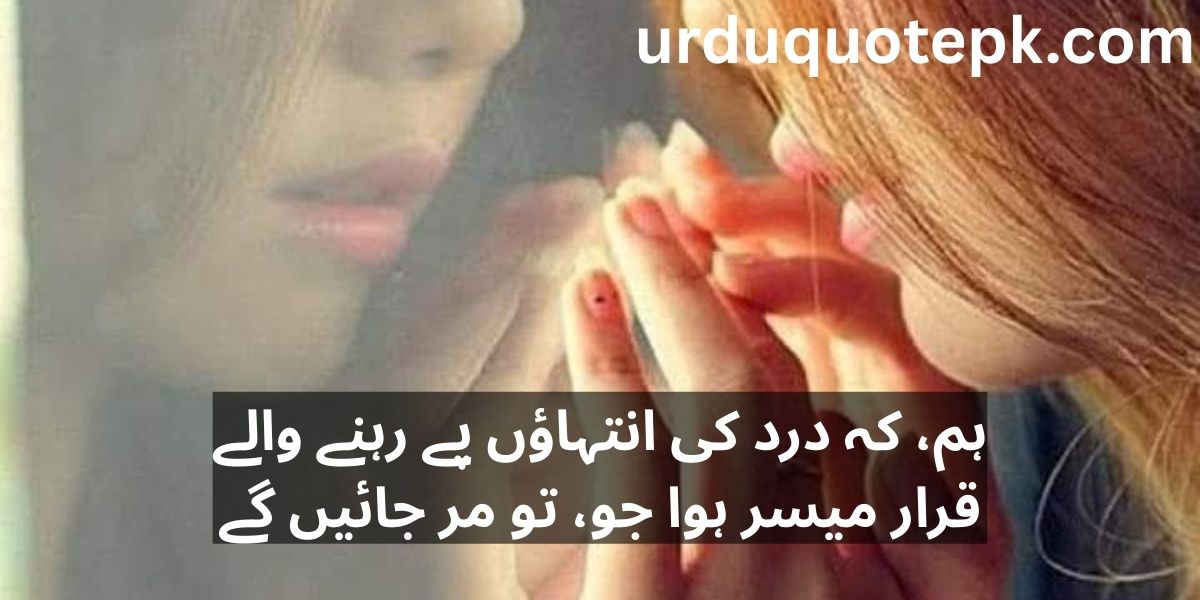
ہم، کہ درد کی انتہاؤں پے رہنے والے
قرار میسر ہوا جو، تو مر جائیں گے
Hum, ke dard ki intehaon pe rehne wale
Qarar milay jo, to mar jayen ge
Translation:
We, who live at the extremes of pain,
If peace comes, we will die.
Reflection:
This shayari speaks to those accustomed to suffering, suggesting that peace might be so unfamiliar it could overwhelm them. It captures the paradox of finding solace after enduring endless pain.
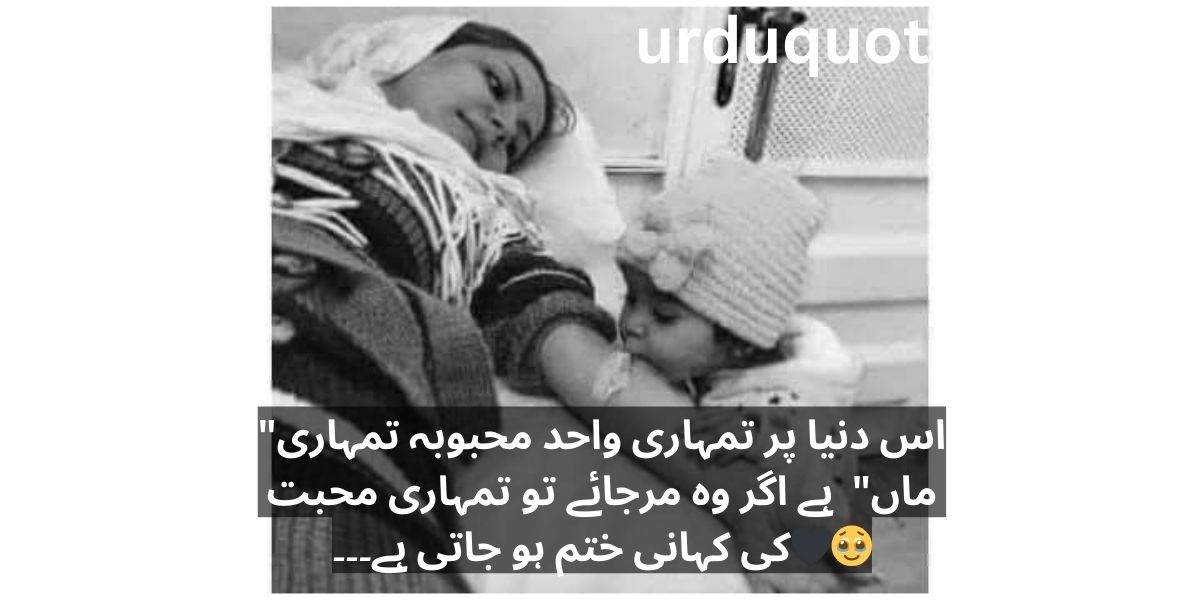
اس دنیا پر تمہاری واحد محبوبہ تمہاری ماں ہے
اگر وہ مر جائے تو تمہاری محبت کی کہانی ختم ہو جاتی ہے
Is duniya par tumhari wahid mehbooba tumhari maan hai
Agar woh mar jaye to tumhari mohabbat ki kahani khatam ho jati hai
Translation:
In this world, your only beloved is your mother,
If she dies, your love story ends.
Reflection:
This verse underscores the irreplaceable role of a mother’s love. It conveys the profound loss felt when a mother passes, marking the end of a unique and unmatched bond.
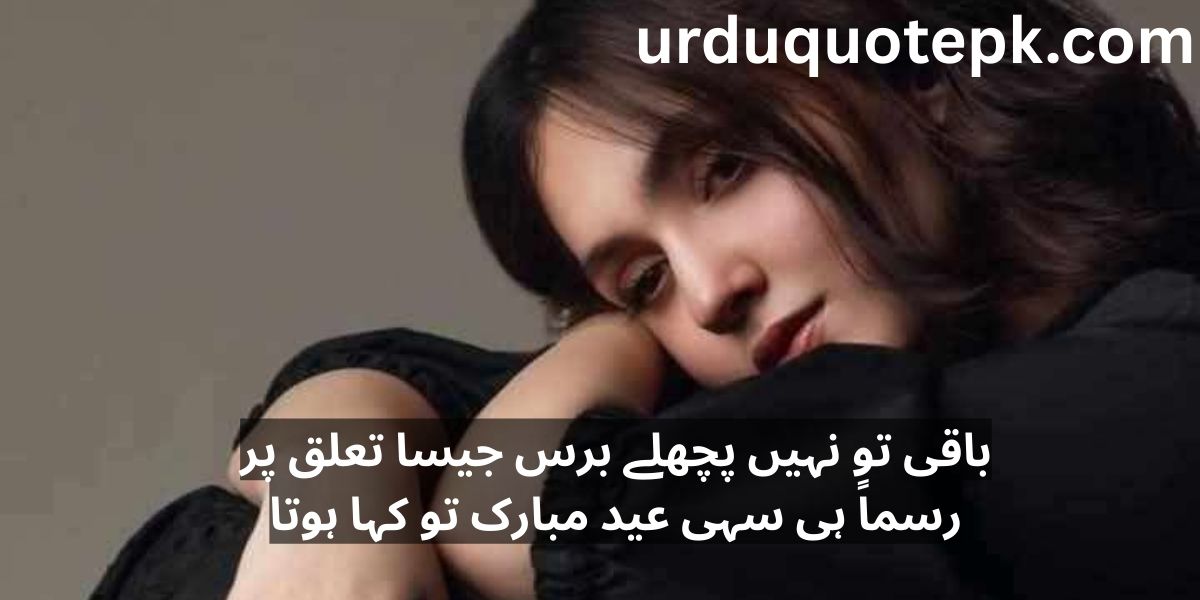
باقی تو نہیں پچھلے برس جیسا تعلق پر
رسماً ہی سہی عید مبارک تو کہا ہوتا
Baqi to nahi pichle baras jaisa taalluq par
Rasman hi sahi Eid mubarak to kaha hota
Translation:
The bond isn’t what it was last year,
But even formally, you could’ve said Eid Mubarak.
Reflection:
This shayari expresses the pain of a strained relationship, where even a simple greeting is missed. It reflects the longing for connection, however small, during festive times.
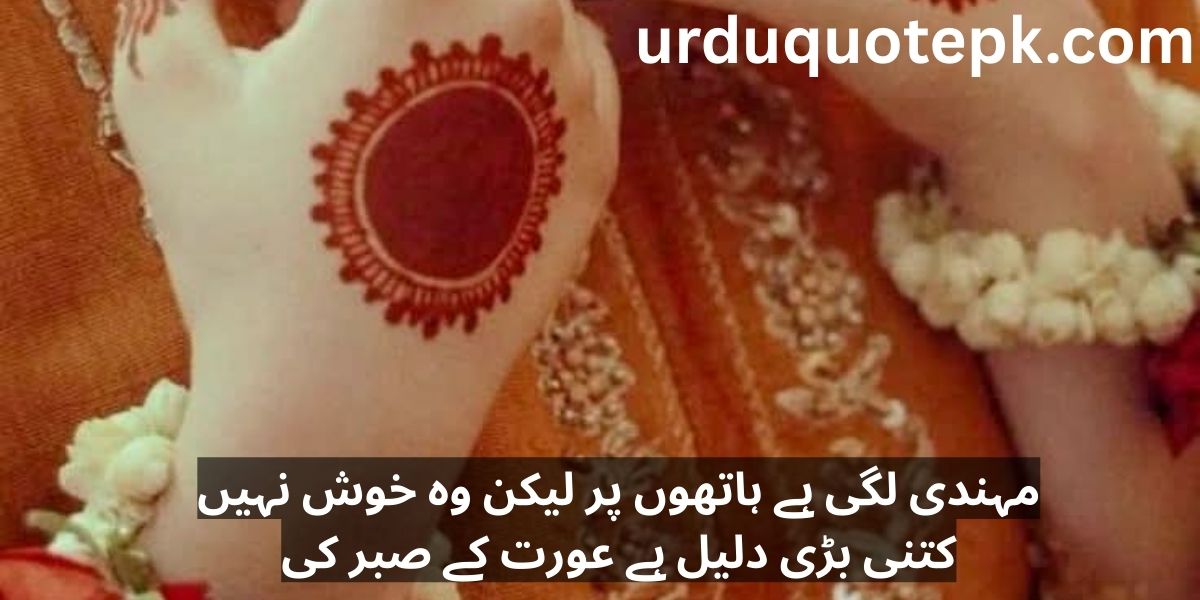
مہندی لگی ہے ہاتھوں پر لیکن وہ خوش نہیں
کتنی بڑی دلیل ہے عورت کے صبر کی
Mehndi lagi hai haathon par lekin woh khush nahi
Kitni badi daleel hai aurat ke sabr ki
Translation:
Henna adorns her hands, but she isn’t happy,
What a great testament to a woman’s patience.
Reflection:
This verse highlights the resilience of women who hide their sorrow behind outward beauty. It praises their strength in enduring pain while maintaining grace, symbolized by henna.
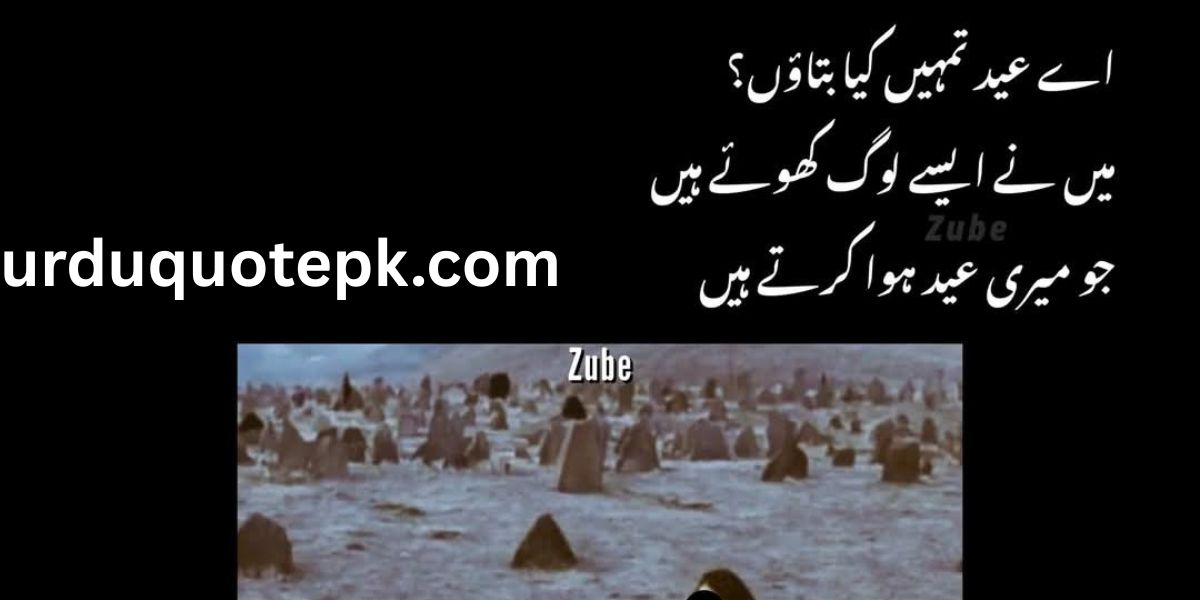
اے عید تمہیں کیا بتاؤں
میں نے ایسے لوگ کھوئے ہیں جو میری عید ہوا کرتے تھے
Ae Eid tumhein kya bataoon
Main ne aise log khoye hain jo meri Eid hua karte thay
Translation:
O Eid, how can I tell you,
I’ve lost those who used to be my Eid.
Reflection:
This shayari captures the grief of celebrating Eid without loved ones who once made it special. It conveys the emptiness felt when cherished people are no longer present.
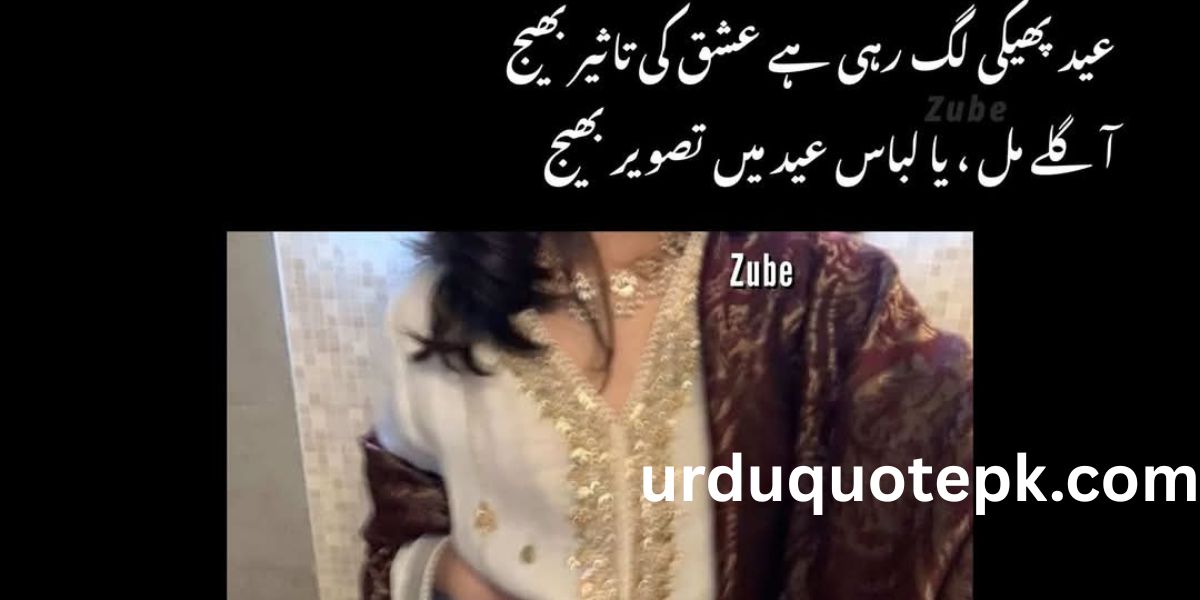
عید پھیکی لگ رہی ہے عشق کی تاثیر بھیج
آ گلے مل، یا لباس عید میں تصویر بھیج
Transliteration:
Eid pheeki lag rahi hai ishq ki taseer bhejo
Aa gale mil, ya libas Eid mein tasveer bhejo
Translation:
Eid feels dull, send me the essence of love,
Come embrace me, or send a picture in your Eid attire.
Reflection:
This verse expresses the yearning for a loved one to restore the joy of Eid. It highlights how love and connection can transform a lackluster celebration into something meaningful.
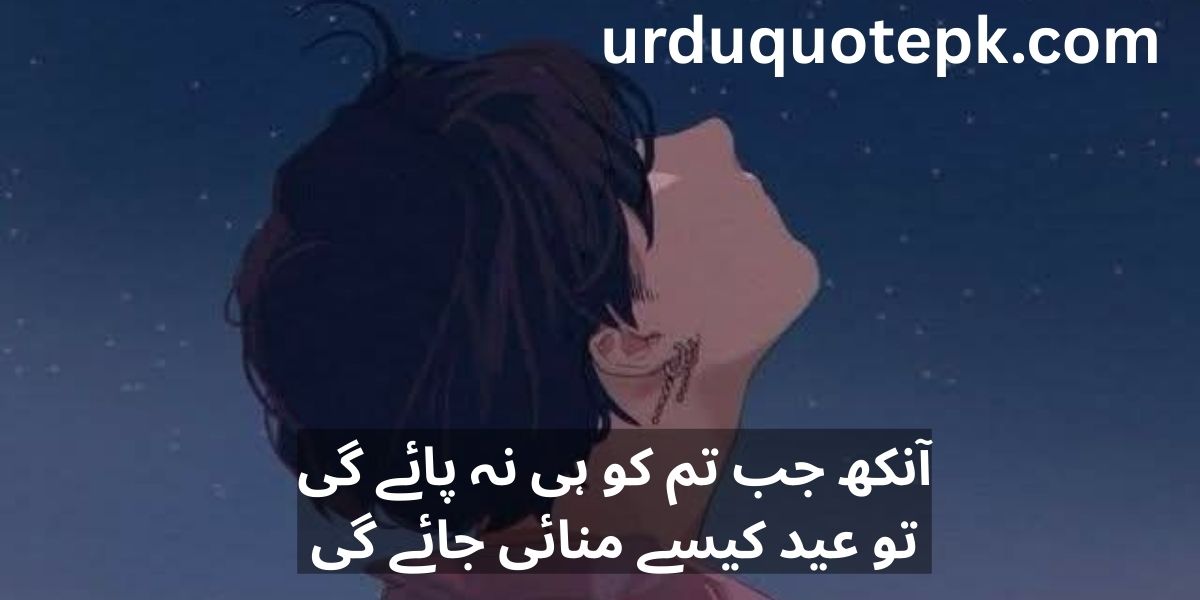
آنکھ جب تم کو ہی نہ پائے گی
تو عید کیسے منائی جائے گی
Aankh jab tum ko hi na paye gi
To Eid kaise manayi jaye gi
Translation:
When my eyes don’t find you,
How will Eid be celebrated?
Reflection:
This shayari conveys the impossibility of joy without a beloved’s presence. It underscores how true celebration depends on sharing moments with those who matter most.
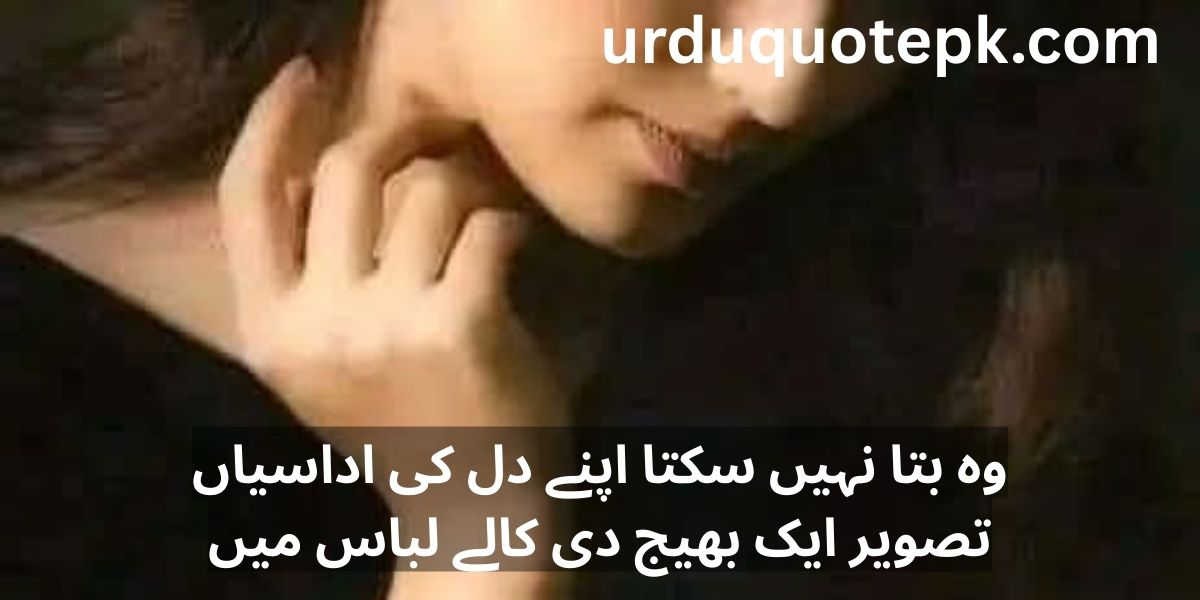
وہ بتا نہیں سکتا اپنے دل کی اداسیاں
تصویر ایک بھیج دی کالے لباس میں
Woh bata nahi sakta apne dil ki udasian
Tasveer ek bhej di kaale libas mein
Translation:
He cannot express his heart’s sorrows,
So he sent a picture in black attire.
Reflection:
This verse captures the silent grief of someone unable to voice their pain. The black attire symbolizes mourning, conveying emotions too deep for words.
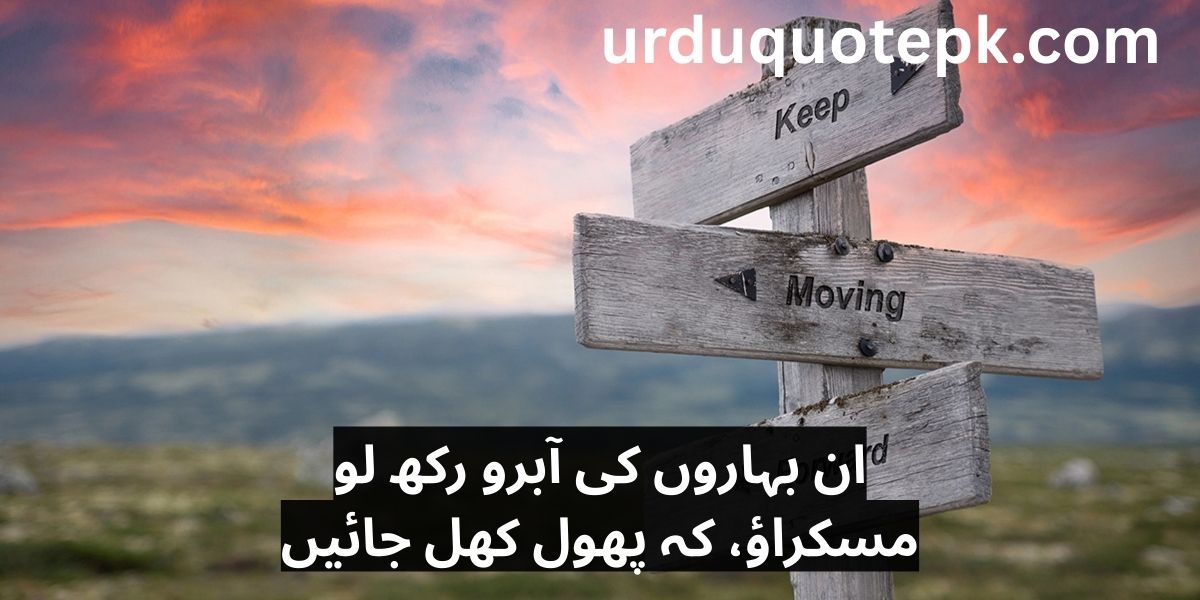
ان بہاروں کی آبرو رکھ لو
مسکراؤ، کہ پھول کھل جائیں
In baharon ki aabroo rakh lo
Muskurao, ke phool khil jayen
Translation:
Honor the dignity of these springs,
Smile, and the flowers will bloom.
Reflection:
This shayari encourages resilience, suggesting that a smile can bring life to even the dreariest moments. It’s a call to find joy and spread it, like flowers in spring.

وقتِ رخصت اسے سمجھایا یوں روتے نہیں
دو قدم دور یہی خود کو بھی سمجھانا پڑا
Waqt-e-rukhsat usse samjhaya yoon rote nahi
Do qadam door yahi khud ko bhi samjhana pada
Translation:
At the time of parting, I told them not to cry,
Two steps away, I had to console myself too.
Reflection:
This verse captures the pain of farewell, where one must comfort another while battling their own sorrow. It reflects the strength needed to part ways gracefully.
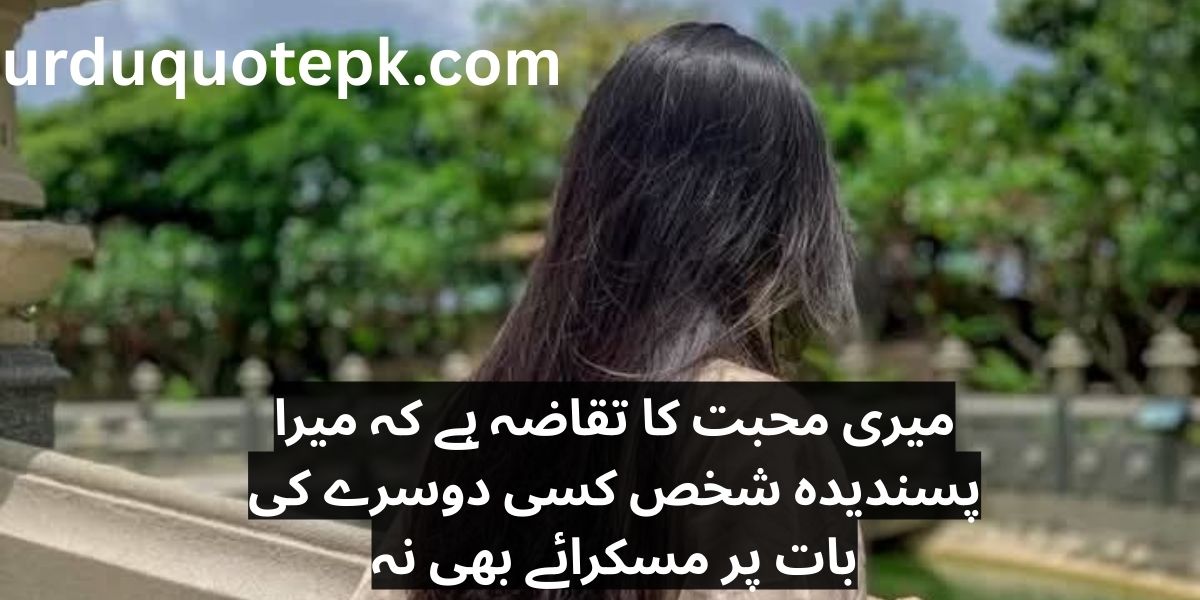
میری محبت کا تقاضہ ہے کہ میرا پسندیدہ شخص
کسی دوسرے کی بات پر مسکرائے بھی نہ
Meri mohabbat ka taqaza hai ke mera pasandida shakhs
Kisi doosre ki baat par muskuraaye bhi na
Translation:
My love demands that my favorite person
Doesn’t even smile at another’s words.
Reflection:
This shayari expresses possessive love, where the speaker desires exclusive devotion. It conveys the intensity of affection that seeks to be the sole source of joy.
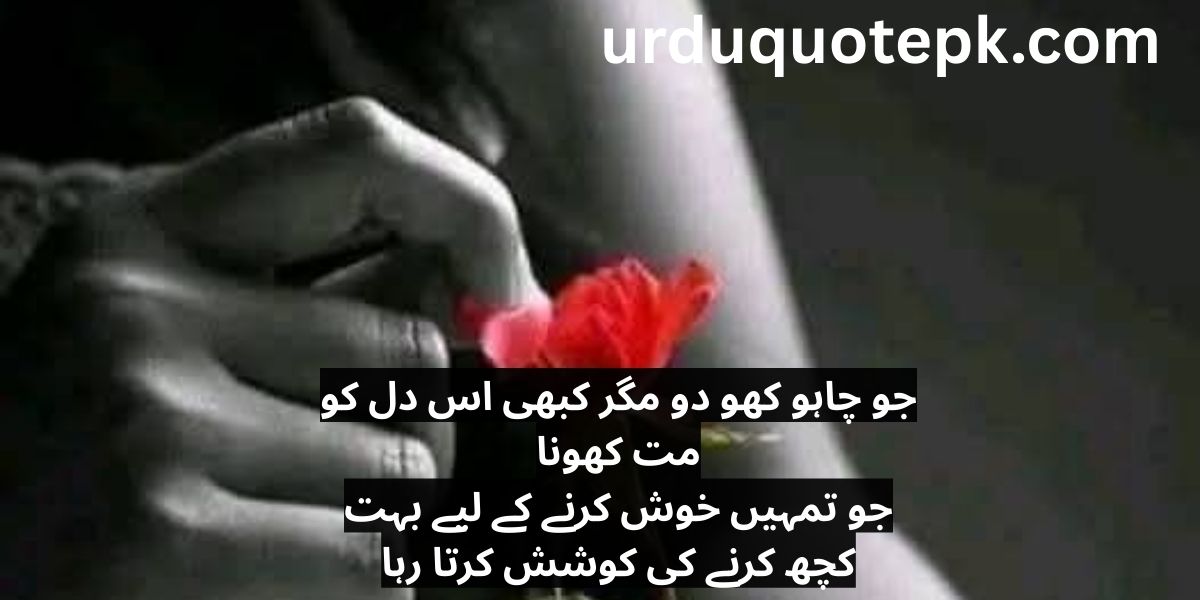
جو چاہو کھو دو مگر کبھی اس دل کو مت کھونا
جو تمہیں خوش کرنے کے لیے بہت کچھ کرنے کی کوشش کرتا رہا
Jo chaho kho do magar kabhi is dil ko mat khona
Jo tumhein khush karne ke liye bohat kuch karne ki koshish karta raha
Translation:
Lose whatever you want, but never lose that heart,
Which tried so hard to make you happy.
Reflection:
This verse is a plea to value a devoted heart that tirelessly seeks another’s happiness. It underscores the rarity of such selfless love, urging its preservation.
See Also: urduquotepk.com
Conclusion
These shayari weave together themes of love, sacrifice, and heartache, offering solace to those navigating life’s emotional complexities. They remind us that pain is universal, but so is the capacity for hope and connection. Share these verses on WhatsApp, Instagram, or Facebook to spread their beauty, or keep them close as companions in moments of reflection. Brighter days are always within reach.

